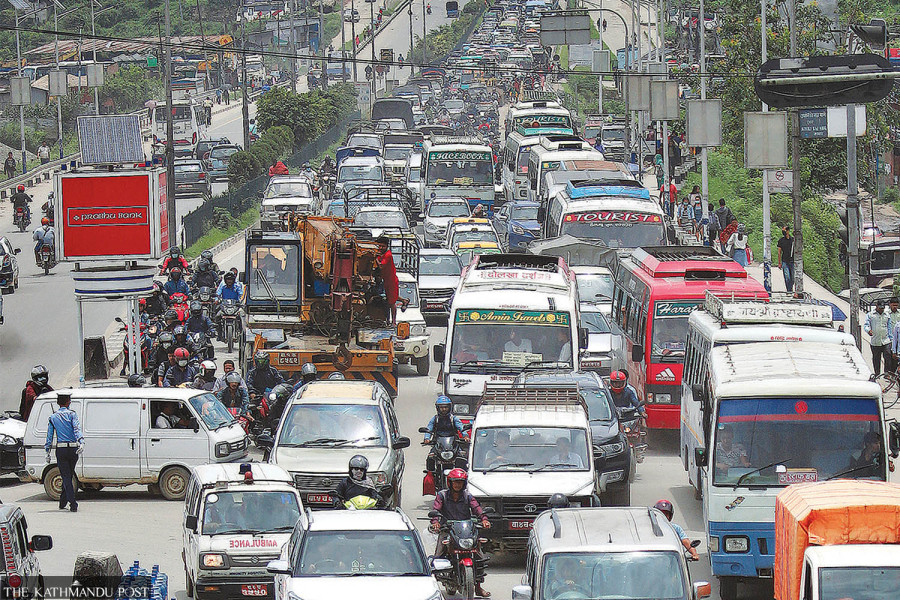National
Government decides to have two-day weekend
Starting May 15, government offices will remain closed on Saturdays and Sundays.
Post Report
The government has decided to reintroduce a two-day weekend—on Saturday and Sunday.
A Cabinet meeting on Tuesday took the decision with a view to reducing the consumption of fuel, which is straining the national coffers.
According to Minister for Communication and Information Technology Gyanendra Bahadur Karki, who is also the government spokesperson, the government has decided to implement the two-day public holiday decision effective from May 15 as a trial.
Government offices will remain closed on Saturdays and Sundays, as per the decision. The five-day working hours will be from 9:30am to 5:30pm, in a change from the earlier 10am-5pm working duration.
The import of fuel has been creating pressure on the country’s foreign exchange reserves which have dwindled to Rs171 billion in mid-March from the beginning of the fiscal year, which is sufficient to sustain imports for 6.7 months against the target of seven months.
The five-day work week decision comes amid the government's move to ban at least 10 types of items, which it considers luxury goods, including vehicles, mobile phones, television sets, playing cards and Lay’s potato chips.
This is not the first time Nepal is opting for a two-day weekend.
Two decades ago also, the government had implemented a two-day weekend policy. At that time, the goal, according to the then government, was to increase efficiency and productivity of employees.
However, the decision was scrapped within a few months after the new rule failed to achieve the goal of enhancing employee’s efficiency and productivity.
This time, the sole purpose of introducing a two-day weekend policy is to cut costs, especially the use of petroleum products.
Nepal’s fuel import bill lately has swollen to Rs1 billion daily, which is hurting foreign currency reserves badly. The Nepal Oil Corporation, the state-owned oil monopoly, has already declared that it is broke and the government has been pumping money to import fuel.
Nepal is among the countries with the most number of public holidays.
“That’s a bad idea indeed,” said Bishwambher Pyakuryal, an economist.
“There are numerous complaints from the people with regard to public service delivery. The five-day work week will make things worse. People will suffer more.”
According to the Financial Comptroller General's Office, which keeps records of the government’s income and expenditure, government agencies spent Rs2.62 billion on fuel in the last fiscal year 2020-21.
Nepal’s petroleum import bill in the last fiscal year stood at Rs175.53 billion, according to the Trade and Exportation Promotion Centre.
The petroleum import bill as of the first eight months of the current fiscal year that ended mid-March reached Rs184.98 billion, making oil the country's largest import.
Fuel accounted for 14 percent of the country’s total import bill, according to the centre.
“But if the rules apply to all, including the private sector, it could have some impact on the government policy to save fuel,” said Pyakurel.




 19.12°C Kathmandu
19.12°C Kathmandu













